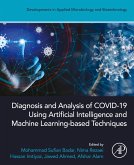Computational Intelligence in Protein-Ligand Interaction Analysis presents computational techniques for predicting protein-ligand interactions, recognizing protein interaction sites, and identifying protein drug targets. The book emphasizes novel approaches to protein-ligand interactions, including machine learning and deep learning, presenting a state-of-the-art suite of skills for researchers. The volume represents a resource for scientists, detailing the fundamentals of computational methods, showing how to use computational algorithms to study protein interaction data, and giving scientific explanations for biological data through computational intelligence. Fourteen chapters offer a comprehensive guide to protein interaction data and computational intelligence methods for protein-ligand interactions.
- Presents a guide to computational techniques for protein-ligand interaction analysis
- Guides researchers in developing advanced computational intelligence methods for the protein-ligand problem
- Identifies appropriate computational tools for various problems
- Demonstrates the use of advanced techniques such as vector machine, neural networks, and machine learning
- Offers the computational, mathematical and statistical skills researchers need
Dieser Download kann aus rechtlichen Gründen nur mit Rechnungsadresse in A, B, BG, CY, CZ, D, DK, EW, E, FIN, F, GR, HR, H, IRL, I, LT, L, LR, M, NL, PL, P, R, S, SLO, SK ausgeliefert werden.









